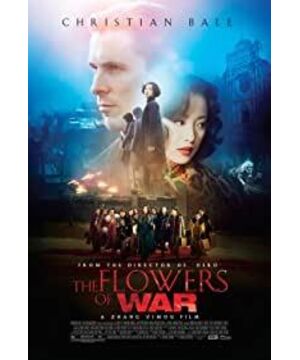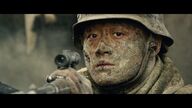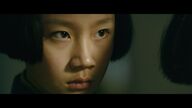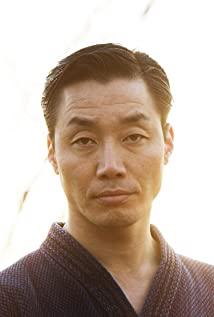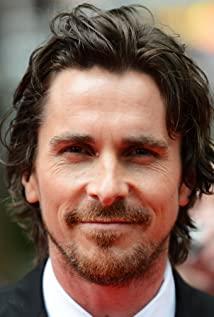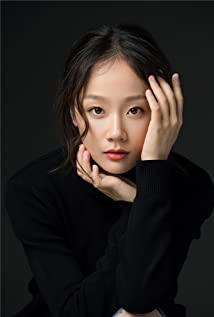model
I have a special hobby for World War II movies. War and human nature are always the best band-aids on this subject, but this trauma is too great, and blood is constantly rushing on the body of history, and often we can only see a pale, frightening but incomplete picture along the blood trail. s face.
Oskar Schindler bought 801 Jewish lives with money, and the last group of Jews used the extracted gold teeth to cast a ring on his finger, inscribed with the Hebrew scripture: Save a life, save the world.
Johann Rabe, because of his identity as a Nazi, suffered a lot after the fall of the Hitler government, and his family was extremely poor. However, the people of Nanjing did not forget him. In 1948, he asked the mayor of Nanjing to donate more than 100 million yuan in donations, food and living expenses. Supplies were sent to him.
He left more than 2,000 pages of manuscripts, organized into a volume called "Rabe's Diary", which has left precious evidence for our accusations of barbarism.
The Second World War left in the minds of Europeans is often linked to the concentration camps, and the Chinese people are all in awe when they recall the Nanjing Massacre.
The Chinese-American female writer Zhang Chunru even used her life to unearth the umbilical cord of these painful history. She told people: "Forgetting the massacre means being massacred a second time.
" Is "The Thirteen Hairpins of Jinling" better than "Schindler's List"? I doubt the IQ of the questioner, how can different countries, different directors, and even different cultures be the same? "Lao Mouzi" has deliberately made his films exude a style with Chinese characteristics, and there is no way for foreigners to learn.
From "time is like cleavage in the golden armor, there is still some squeezing" ("Golden Armor in the City"), to "the cleanest love movie in history" ("Hawthorn Tree Love"), people ridicule each other. There is another Zhang index in rhetoric, which actually shows that his films are indispensable in the eyes of Chinese people. But no matter what, his films are always borderline with eroticism. He said that in the just-released "Thirteen Hairpins", all prostitutes with graceful figures and their fat buttocks wrapped in cheongsam sway left and right, which is obviously a part of history. There was a show on the site.
Lao Mouzi's films are thoughtful and very forward-looking. He hopes to return in the strong, and looks at the local customs with an international perspective, so the "International Chapter" in "My Father and Mother" wears a cumbersome cotton jacket and plays with two braids. "The Golden Armor" spreads the deformed and twisted family ethics of "Thunderstorm" to the world; and "Heroes" with conceptual costumes, promiscuous performances, and commercial-style fights, "House of Flying Daggers" The "cat and mouse" style of hiding in the novel, the excessive purification of the educated youth's life in "The Love of the Hawthorn Tree"... He wanted to impress the world's forehead with the vulgar and regional culture like the impression of West Lake and the impression of Liu Sanjie. .
What you see is always a Chinese story and an international perspective. This kind of commercial packaging is more beneficial than detrimental to the development of the film market, but it is often far from art and independent films, and deliberately weakens creations that go against the national conditions and hurt the mainstream. Awareness, close to or close to the business model of the Western film market, in this regard, there are many outstanding people. Feng Xiaogang often uses "respect for the refined and the popular" as a stepping stone, and he can still win the joy of the common people. Chen Kaige did not know what he said in several movies, and the common people sighed. Zhang Yimou obviously prefers to implant business culture in serious films. You can clearly see the composition of a director's own personality.
His special affection for women and the scandals with actresses behind the screen are nothing new. The actresses who appeared in his films have been named "Missing Girls", just like the birth of Miss Hong Kong every year, Zhang Yimou It has become a platform and a brand. How many girls who want to become famous and want to go crazy don’t hesitate to be naked under the camera of Director Ang like Tang Wei. Although Director Zhang has repeatedly failed to compete in the Olympics, he can be regarded as the high box office holder of Chinese mainstream movies. , but this kind of glory is not easy to come by. Jia Zhangke, the sixth-generation director, is very dissatisfied with the release of "The Three Gorges", which was released at the same time. "Golden Armor" was squeezed out of the theater. Such a victory is like a arrogant old king. The next generation ignores it, how much it makes people feel cold.
"The Thirteen Hairpins of Jinling" also uses a pretense to praise women. He cut Yan Geling's novel into a cake-like cut, and spent a little thought on each part.
Wars are originally confrontational. The confrontation between the Japanese army and the national army is a hostile relationship between life and death. The Nanjing Massacre was actually a naked fight and short-edged sword under anarchy. The violence of the invaders and the confusion of the common people Form a very disproportionate state of "deep excavation of soft soil". The Japanese army even blatantly violated some international war regulations and carried out "slaughter games" against the unarmed masses. And Director Zhang actually has the heart to play with a cake thrown in the fire of war. Its color, taste, lubricity, and the lens art that is too greasy, sweeping on female organs, using live meat to open a historical passage, perhaps Is it another channel leading to his impact on Oscar?
■Humanity is displayed in a narrow space.
Fortunately, the novel avoids the naked and direct massacre scene, and uses the church as the scene. At this time, the human nature is fully displayed as an active factor in the relatively narrow space. Yan Geling grabbed the three factions in an orderly manner: religious staff, prostitutes, and church schoolgirls as three opposing forces, and they were close to each other in opposition.
For example, from the perspective of "I" Shu Juan, he wrote about the physical pain of the menarche on the day of the Japanese invasion, and this physical pain signifies the transformation from a girl to a woman, who has the same body as the prostitute in front of her. ashamed. As objects that may be watched and desecrated by the invaders at any time, their panic is the same. Therefore, from the confrontation of status and stratum to the blending of life and death, honor and disgrace, it is a dramatic process of rising from the level of ethics and morals to the level of human feelings.
Yu Mo in the book actually had an affair with the grandfather of Dr. Shuangliu, who came back from studying abroad. She has a charming appearance and a lively way of seducing people. She also indulges in dancing when the wine is waning, compared to Ni Ni in the movie. The one that is obviously more splashy and more tempting.
Yan Geling's pen is an arrow with extremely strong penetrating power. With a little bit of lifting, it traverses and traverses, stirring up the grayness of the massacre of the city.
The script of the movie was significantly changed by Liu Heng and Yan Geling. The role of Father Ingman in the original book was deleted and replaced by John, played by Christian Bale. Put on the priest's clothes and act as a priest.
Compared to the responsible, benevolent Father Ingman in the original book, John is initially a little cynical, even hooking up with prostitutes who are also hiding in the church. And when the Japanese invaded the church, he couldn't wait to hide in the closet. This is obviously a tailor-made role for Bell, and it gives the play points of succession and integration. Unfortunately, "Laomouzi" is forced to change the role and use a piece of clothing to change the mentality of this role.
In the film, John hides in a closet and then inadvertently puts on the priest's clothes, feeling that he has become a priest and should take responsibility for protecting these girls. But there is a doubt, he is not a member of the church, why would he suddenly change his mind within a few minutes, willing to stand up at the cost of his life? This persuasiveness is actually not enough. I think it was later that he told Yu Mo that he buried his daughters with his own hands, so he could bury a foreshadowing here to arouse his fatherly love for the girls, but the director let a dress It was incredible to convince him.
In addition to Yumo, the tragic end of another prostitute, Cardamom, who spent a lot of time in the film, is actually a reference for everyone to imagine for the whole film. Cardamom fell in love with Wang Pusheng, the boy with a broken leg. In the book, it was written that she rushed to a brothel to retrieve the pipa string, and was gang-raped. She was arrested because she saw a corpse that was cut open and screamed. In the movie, the pipa string that was found was lost, and he went back to look for it, which seemed wordy and uninspired.
On the contrary, a set of long shots and the scene of being stabbed with blood after the gang rape is impressive, with a sense of beautification, without any panic or horror. Zhang Yimou intentionally restrained the extended lyricism of some images, but he still revealed his faults in the narration process, intentionally or unintentionally. As a result, the afterimage was defeated, the abdomen was cut open, and the vague flesh and blood under the knife and gun were all endowed with a sense of aesthetics. Here I would like to commend Director Lu Chuan for the filming of "Nanjing, Nanjing!" "The black-and-white image documentary style chosen during the time has deepened the sense of reality. Conscious beautification will only make the mirror surface on the surface, there is a taste of watching and appreciation.
At the beginning of the movie, there was a long plot depicting the soldiers of the national army who swear to resist. From the beginning, the solemn bronze-like color of the ruins and armed battles set the tone for the film, and then reflected the gorgeousness of the powder of the Qinhuai River. With the tough lines of the soldier (man) as the back of the enchanting prostitute (woman). It's not that it's bad, it's like being cut into two parts, which looks unnatural.
These soldiers acted calmly and bravely in front of tanks and machine guns. The upgraded camera made a line of big men fall to the ground one after another like a thousand-handed Avalokitesvara, and the surviving people also had sharp spear sniping like Jude Law in "Soldier" Even if you want to die, you must "make the best use of your hands" and drag a few Japanese devils to bury them with you. Such bravery made the lineup of relatively small resistance complete a tragic act. However, no matter how "people make the best use of them" and how to show the bravery and adeptness of the soldiers of the national army, it seems that they are completely irrelevant to the theme of the movie. Those prostitutes still have to be sex slaves for the Japanese soldiers. I don't know if Director Zhang has filmed too many women's scenes. He intentionally wanted to film men, but he accidentally shot too much. Thinking about the Chinese people's love of Tai Lihua, it's better to keep it!
■To commit a collective crime for a sacred cause
Because Zhang Yimou studied photography and is familiar with lens aesthetics, a bullet pierced through the colorful glass window of the church, like a few fluorescent rhinestones drilled out of a wreath; looking out from the window, A group of enchanting prostitutes in cheongsam poured in, chatting and laughing, and from the perspective of the girl Shujuan, she looked just like the 13-year-old Marlene in the eyes of 13-year-old Velitu in "The Beautiful Legend of Sicily".
Beauty and beauty invaded this sacred place like bad water and sewage, and there was a voice of resistance and conflict, until finally, under the threat of weapons, life showed equality. Then the prostitutes came forward and were willing to go to the Japanese appointments for these female students. The funny thing is that the reason is actually against human rights, because the female students are still virgins, and the prostitutes have already "full of evil" - this is again A performance of "making the best use of people", anyway, the Japanese clearly want to vent their desires, it is better to slander the body of a prostitute, and maybe they can use venereal diseases such as flowers and willows to take revenge on these beasts. For example, Yu Mo, who had to present her body to Father John the night before she left, to show her love and loyalty, she was obviously a prostitute, but she wanted to show her purity, from "being as good as possible" to "human beings." Make the best use of it", the director makes a big change in his position with a little manipulation, which can really be called "pointing the golden finger".
It is said that the original meaning of "prostitute" refers to female music, that is, those who dance and sing to please others, which corresponds to the "Qinhuai Scenery" in the movie Yingyan's soft words. The city of Nanjing has been full of heroism since ancient times, and there is no lack of graceful and soft temperament in the south of the Yangtze River. Therefore, most Qinhuai women seem to be soft, but their character is rippling with a strong air.
Ye Zhaoyan once wrote in "Nanjing Women": "Qinhuai Bayan is a mirror, looking at the previous dynasty from the bottom of the peach blossom fan, through these eight extraordinary women, what people see is the decadence of Chinese culture and the knowledge of Chinese men. The hypocrisy and pretense of the elements. Like Qian Muzhai and Hou Fangyu, they are all famous talents. These talents sang high-profile first, but ended up being out of control and speculative... It was the eight little girls by the Qinhuai River who sang vigorously. A song of righteousness, humiliating a man and a man." The
film is to allow these prostitutes to turn over, to overthrow the saying that "bitch is ruthless and showman is unrighteous", and overthrow "business women do not know the hatred of subjugation of the country, and they still sing the backyard flowers across the river" In other words, I just don’t know which prostitutes like Yu Mo, who can speak English and know shame and love, came from which of the four types of brothels in the early period of liberation? If he had such a talent, he would have been secretly added to the secret service team by the organization, and Tang Wei was nothing more than that!
It is said that among the Eight Hutongs in Beijing, Sai Jinhua and Xiaofengxian are all from the "Qingyin Small Class", while "Tea Room", "Xia Chu" and "Yaozi" are all second, third and fourth. The status of prostitutes is low, and it is rare to come out such 13 people who echo the "Eight Beauty" in ancient times. Applying the "hairpin" of the lovely women in "A Dream of Red Mansions" is completely correcting the crooked, and perfecting human nature with the cuteness of prostitutes. , with the traditional deviation.
And this kind of discrimination is also prevalent in the West. Margaret in "La Traviata" couldn't fall in love with her sweetheart because of her identity. The prostitute in "Ball of Suet" distributes food to passengers in the same car to save her life. They don't hesitate to sacrifice their bodies, but they are discriminated even more deeply by these hypocrites.
To put it bluntly, the kind of chastity shown in the movie is still too decisive, and the director just used a plot where the girls would rather die for chastity, and let these prostitutes willingly replace them as the beastly targets of the Japanese, which is obviously persuasive. Somewhat underwhelming. And it did not highlight the prostitutes' "dirty life, great death" from the perspective of comparing with men.
The movie has always been moving forward in the present tense, without the insertion of memory scenes, unlike the text space that comes and goes like the wind and shuttles freely, so the life and fate of the characters can only be expressed through oral language, Yu Mo and John are both there. Telling each other about their grief experiences, extremely restrained, and ended in a few words, deliberately avoiding large paragraphs.
Although this has some advantages so far, it lacks the fullness of the characterization. At least this kind of pain has no pre-layout and external evolution, and the talk will appear deliberate. Also, George Chen dressed up as a girl to act like a joke in "Thirteen Hairpins", and he even gave him a reason, knowing that he was going to the appointment of "beast desire", why did he have the heart of "must die"? Maybe the Japanese devils can let go of a lifetime if they satisfy their lust, but they will surely die when they see a living deception. This is a failure. Just like the intention to give the solo dance a little color in the group dance, but there is a mistake in the position of life and death, no matter how well designed the dance steps are, it is only in vain. There are obviously too many loopholes in the movie to follow: ironing all the curls overnight, making schoolgirl clothes that fit, tightening the breasts, and no one has practiced church songs. From a woman to a girl, from a slut to a virgin, is it possible to convince the audience and the Japanese just with hairstyles, clothes, and breasts?
When Zhang Yimou re-examined the famous prostitutes of Qinhuai with an international perspective, the "Thirteen Hairpins of Jinling" was endowed with lofty national spirit and romantic aristocratic temperament. superior. No wonder many people say that they shed tears when they saw these prostitutes sing to the female students before they went to the appointment. In fact, they saw the living beings, the plump flesh wrapped in silk and satin, the war covered with gray The smoke of gunpowder, the tough lines of the soldiers, the pure and single discriminatory gaze of the female students, the solemn and inviolable atmosphere in the church, the scorched ruins in bronze, the coveted aspirations of the invaders, the tragically broken memories of life experiences, imminent, The shadow of death is held up close at hand, just like when people have to donate virgins to pay homage to God, they commit a collective crime for a sacred cause. This has always been a trump card for Zhang Yimou to please the West, changing the angle to let Westerners see the figure and cheongsam of Chinese women, just like changing the way to bribe his profitable customers.
This movie is like a plump body wearing a close-fitting cheongsam, but only half or a profile of the face is exposed. It seems to talk about human nature, but in fact, regardless of history, it seems to talk about the most essential reactions of people when they are at the bottom line of life. In fact, the physical beauty of Chinese women is used to tempt Western society. Although it is the "Thirteen Hairpins", most of them are blurred, just like we can't use Band-Aid to cover the big wounds of history. Thirteen cheongsams, but actually only one profile.
View more about The Flowers of War reviews


